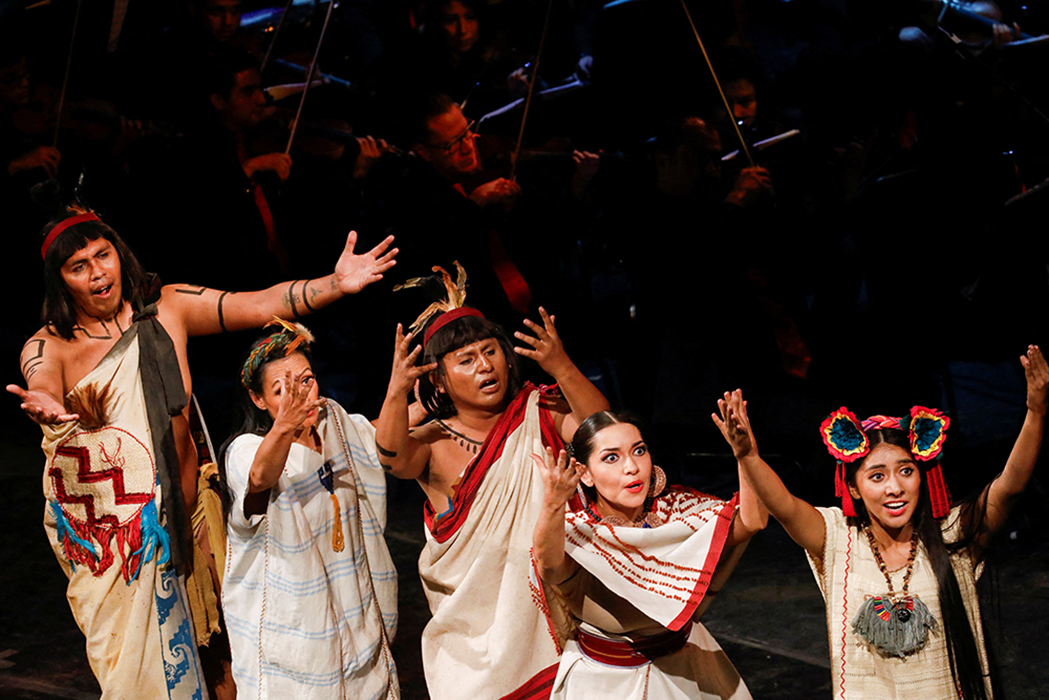MEXICO CITY, (Reuters) – The legendary story of the fierce Aztec ruler who briefly routed Spanish invaders five centuries ago took center stage this week at one of the modern Mexican capital’s best-known theaters, but the opera’s performers did not sing in any European language.
Instead, the actors belted out their songs in the Aztecs’ own imperial tongue of Nahuatl, still spoken by millions of indigenous Mexicans, though helpful Spanish-language supertitles were flashed above the stage at Mexico City’s ornate Fine Arts Palace.
The opera tells the story of King Cuitlahuac, the next-to-last Aztec emperor, who valiantly fought off Spanish soldiers and their native allies in 1520, leading a revolt that killed at least hundreds while forcing many more weighed down with stolen treasures to flee for their lives.
“We’re reclaiming many things,” said Samuel Zyman, the composer of the opera titled “Cuitlahuatzin,” which uses a more formal version of the king’s name.
Despite his heroics, Zyman notes, Cuitlahuac is less known than his older brother, King Moctezuma, who was killed the day before the revolt, according to one early colonial account.
“In this country and in many others, you have the idea that opera is European and only done in Italian or in French, and it shouldn’t be that way,” added Zyman.
“This is a Mexican story, so why shouldn’t it be in the Aztec language?”
The opera featured actors in native costumes, face paint and feather headdresses. Actors tapped out beats on native drums and blew conch shells, as a modern orchestra at the back of the stage accompanied them.
While it’s not clear if the opera’s organizers will offer more showings, some in attendance who likely saw their first-ever Nahuatl opera were clearly moved by Cuitlahuac’s story.
“It was truly extraordinary,” said Nina Alvarez, just after leaving the performance. “Along with the set, the dancers and the speeches, it was very touching.”










